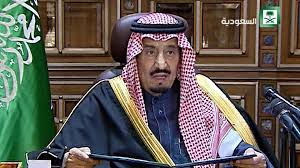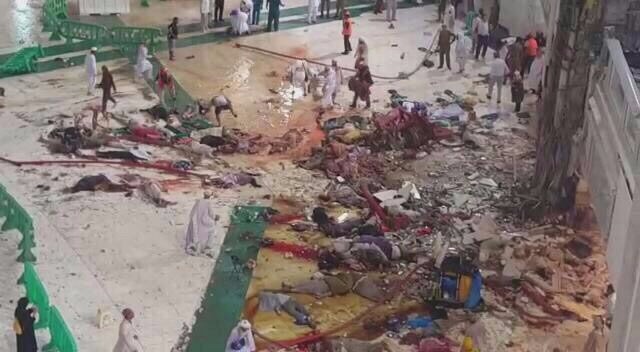Saudi Arabia’s King Salman vowed on Saturday to find out what caused a crane collapse that killed 107 people at Mecca’s Grand Mosque ahead of the annual hajj pilgrimage.
Saudi Arabia's King Salman vowed on Saturday to find out what caused a crane collapse that killed 107 people at Mecca's Grand Mosque ahead of the annual hajj pilgrimage.
"We will investigate all the reasons and afterwards declare the results to the citizens," Salman said after visiting the site.
Parts of the Grand Mosque remained sealed off on Saturday around the wreckage of the crane, which also injured around 200 people when it crashed into a courtyard.
But there was little mourning among pilgrims, who snapped pictures of the collapsed metal and continued with their prayers and rituals.
"I wish I had died in the accident, as it happened at a holy hour and in a holy place," Egyptian pilgrim Mohammed Ibrahim told AFP.
Om Salma, a Moroccan pilgrim, said "our phones have not stopped ringing since yesterday with relatives calling to check on us".
Indonesians and Indians were among those killed when the crane collapsed, while the injured included Malaysians, Egyptians, Iranians, Turks, Afghans and Pakistanis.
Salman expressed his condolences to the families of the dead, and then visited a local hospital "to check on the health of the injured", the official Saudi Press Agency said.
"Suddenly, I heard thunder and then we heard a very loud noise. That was the sound of the crane falling," Mohammed, a Moroccan pilgrim, told AFP.
Earlier, a Saudi official said the hajj, expected to start on September 21, would go ahead despite the tragedy.
"It definitely will not affect the hajj this season, and the affected part will probably be fixed in a few days," said the official, who declined to be named.
